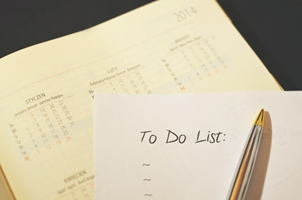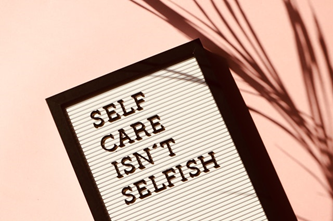How To Overcome Anxiety
Dealing with anxieties that usually accompany your daily responsibilities? Struggling with severe anxiety and panic attacks?
Many people silently struggle with feelings of anxiety. Some more often than others. Learning how to manage these feelings is critical.
In this article, I share with you 7 practical tips for managing feelings of anxiety and improving your mental health.

What is Anxiety?
Anxiety is our body’s response to situations that are interpreted as threatening. In small doses, anxiety is helpful. It protects us from danger, and focuses our attention on issues that affect us.
However, when anxiety is too severe, or occurs too frequently, it can affect how we function.
What Are the Telltale Signs of Anxiety?
When you face something that makes you nervous, you tend to develop these uncomfortable symptoms of anxiety, such as a racing heart, upset stomach, cold-sweating, trembling or thoughts of feeling overwhelmed or afraid.
Some other symptoms of anxiety might include excessive worrying, excessive nervousness, irritability, sleep problems, poor concentration, restlessness, muscle tension and fatigue.
When you start experiencing these symptoms, the default response for most, if not all, is to try to get away from or avoid the person and/or situation that is making you so uncomfortable.

Now avoidance is not always bad.
Many persons have a healthy level of fear for animals, such as frogs, snakes and so on. So it’s reasonable for you to avoid environments where these animals are known to be prevalent.
However, avoidance (whether it be physical or emotional avoidance) only provides short-term relief from anxiety.
In the long-term, the anxiety actually grows.
How does anxiety grow?
When you avoid something, your brain learns a simple lesson-“When I don’t face these uncomfortable situations, I feel good”.
So every time you avoid these situations, this coping skill becomes more ingrained and avoidance becomes your default response.

So how do we begin the journey of breaking the cycle of anxiety?
Tip 1: Pay attention to the situations, people or circumstances that triggers your anxiety.
Tip 2: Pay attention to the physical symptoms that you experience when you feel anxious.
Tip 3: Pay attention to the thoughts you have when you feel anxious.
In my previous article, “Preparing for 2021”, we looked at how our thoughts, emotions and behaviours are always influencing each other.
It is very important that we recognize our thoughts and experiences that trigger an unwanted response (in this case anxiety).
In so doing, you can begin the journey of changing the way that you think and respond to the things that bother you, and in turn, this changes how you feel.
Tip 4: Pace, Prioritize and Make Peace
How you utilize your time can affect whether you feel stressed, anxious or pressured to get things done at the last minute
As far as possible, try to PACE yourself, PRIORITIZE the important things daily and make PEACE with the fact that you cannot always accomplish everything everyday.
Life happens!
You can start incrementally implementing various strategies daily, such as writing out and scheduling everything that needs to get done each day and start making priorities.


Tip 5: Take Care of Yourself
We have responsibilities that sometimes cause us to stretch ourselves to the point that we stop doing what we love and what brings us joy!
We just keep on going and going like the energizer bunny.

For the sake of your mental health, you need to engage in activities that you enjoy. This helps you to learn how to relax and cope with the challenges of everyday life, such as work, school, family, and relationships.
So do yourself a favour, make time for YOU!

Tip 6: Maintain a Healthy Diet and Exercise
Many persons don’t realize that what they consume affects their mind and body behind the scenes.
Many times, when people are stressed, anxious, or depressed, they will consume unhealthy comfort foods to cope because it makes them feel good.
However, the energy that comes with comfort foods quickly comes crashing down.
Pay attention and monitor your caffeine and alcohol consumption. They may be contributing to your anxiety levels.

Exercising is also important and can support a healthy diet.
Staying committed to an exercise routine is difficult for most people. Trust me, I get it.
So try reframing exercise as a hobby instead of a routine. This can help you stay motivated, consistent and boost your self-esteem, which can be beneficial for your mental health.
Tip 7: Breathe In, Breathe Out, Relax
If we become extremely stressed and anxious, it is usual for people to go into a “fight-or-flight” response, which results in anxiety and panic attacks.
Your heart rate quickens and you “forget” how to breathe. Your breathing becomes shallow and your body is not getting enough oxygen flowing.
When you are feeling anxious, take long, deep breaths and slowly let the air fill your abdomen. Then gradually release this air through your lips or your nose.
You can also take some time to sit down and mindfully breathe for 10 to 20 minutes daily in a quiet and comfortable environment, put to rest any distracting thoughts and focus on a word that brings you peace.
This can be helpful in reducing stress and anxiety, as well as, help you develop a calmer mind.

And finally, if managing your anxiety is becoming too much for you to work through on your own, you can seek out professional counselling or therapy.
The counsellor or therapist can assist you with this by helping you work through situations that cause you anxiety and develop the skills you need to cope with difficult emotions.
Don’t allow fear to get in the way of seeking help.
We all need support in one way or the other.
Call or email for your free initial 30-minute consultation or to book a counselling session
If you found the strategies listed in the article helpful, share it with your friends, family and colleagues!
The Promise is in the Process...Don't suffer in silence



